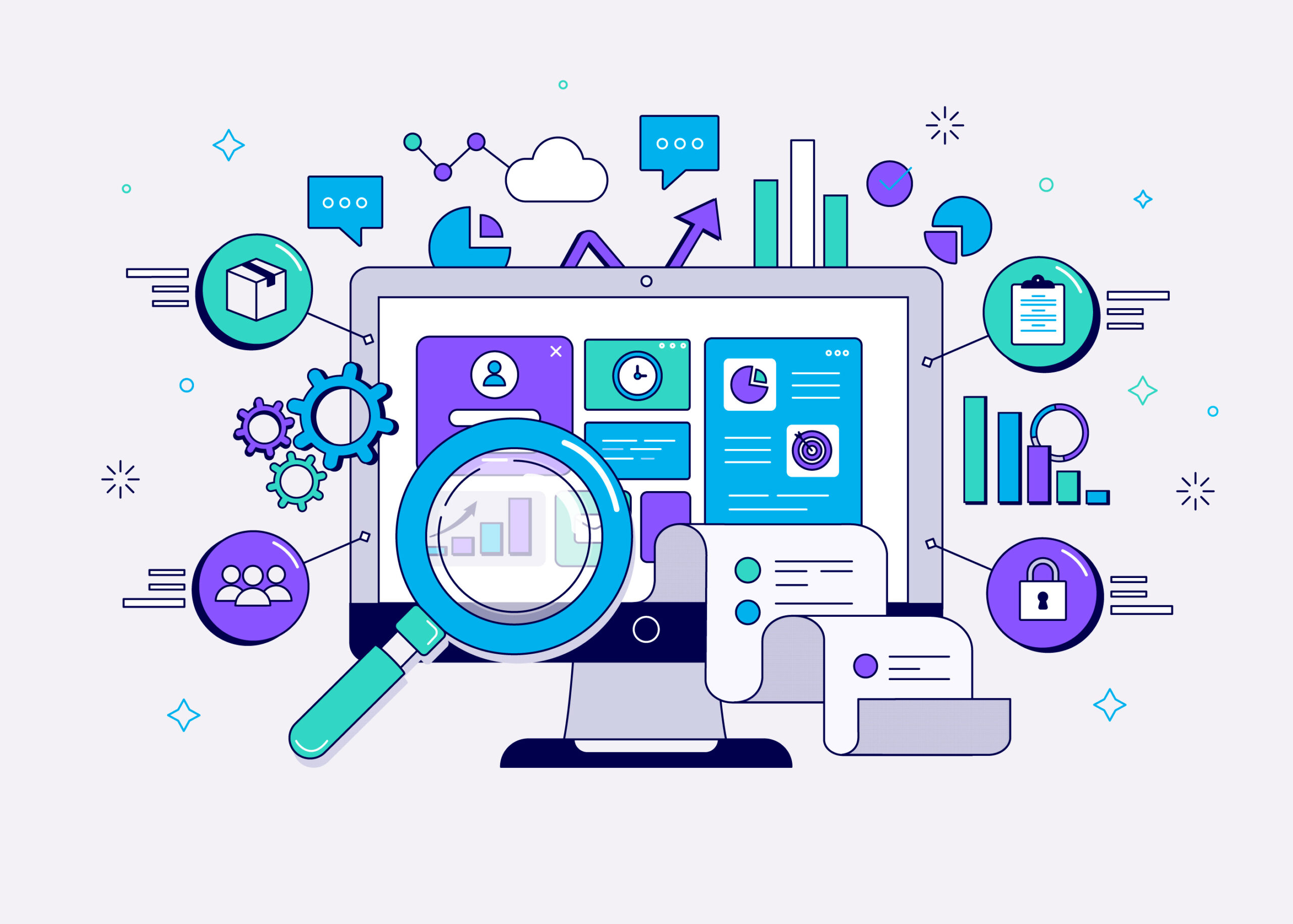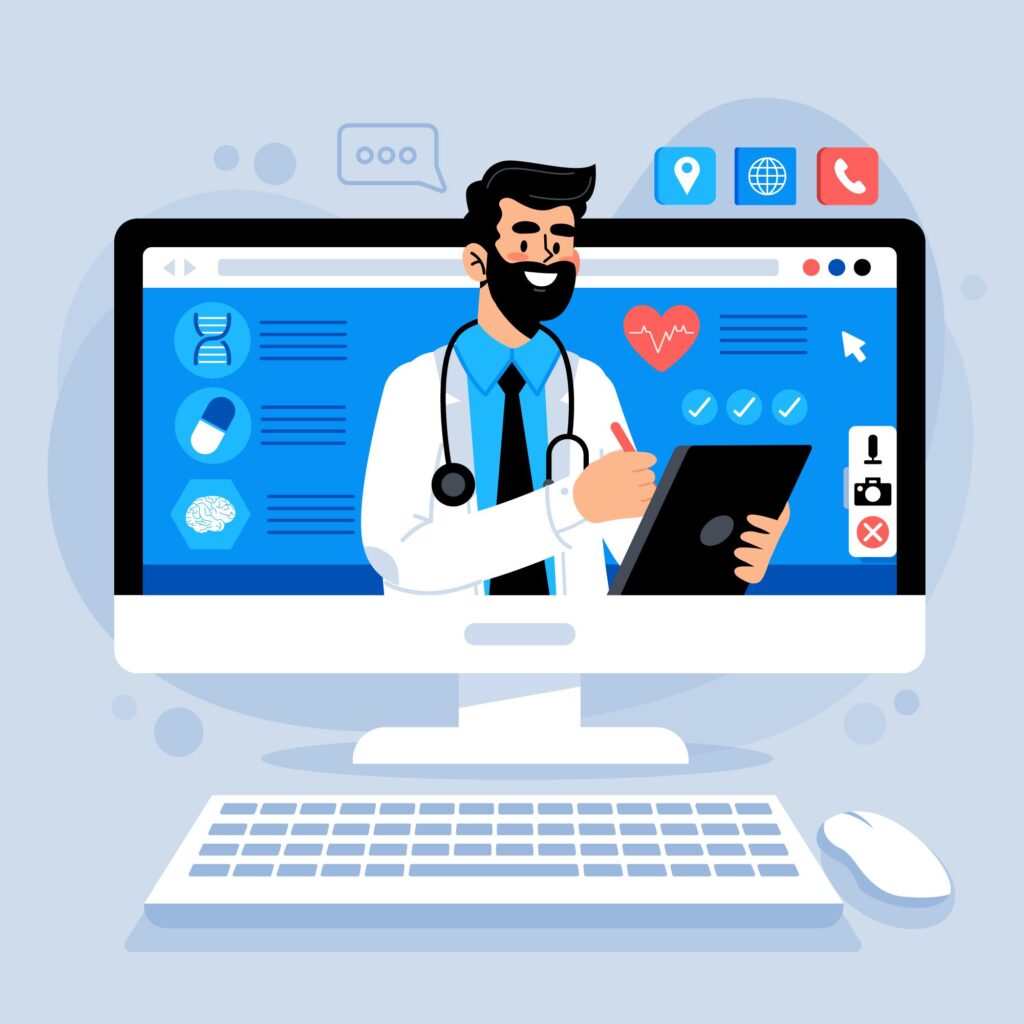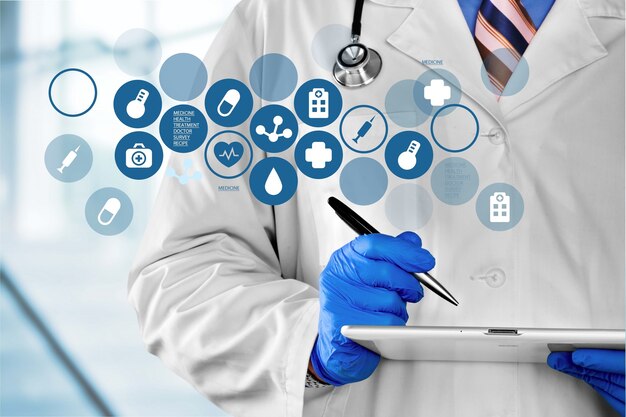Cloudpital # 1 is one of the top ERP drastically changing with technological advancement and a continuously growing demand for more efficient, transparent, and personalized care. Among the transformative technologies are Enterprise Resource Planning (ERP) systems that have increasingly been adopted in healthcare organizations. As hospitals, clinics, and other healthcare institutions look to streamline operations, enhance patient care, and reduce costs, ERP systems become an important tool in strategic planning.
Click to Start Whatsapp Chatbot with Sales
Mobile: +966547315697
Email: sales@bilytica.com
Cloudpital # 1 ERP

What is ERP and How Does it Relate to Healthcare Management?
ERP systems are integrated software platforms that manage and automate various business functions, including finance, human resources, supply chain management, and customer relationship management. An ERP system helps organizations consolidate their data, reduce duplication, and improve workflow efficiency across different departments.
In healthcare, ERP is mainly used to streamline hospital administration, integrate clinical and operational processes, and manage resources such as medications, equipment, and staff more effectively. Healthcare ERP systems can help track patient information, manage inventory, handle billing, and even schedule staff, thus improving coordination across various aspects of healthcare delivery.
Increasing Role of ERP in Healthcare
The healthcare industry faces a lot of challenges such as increasing operational costs and patient expectations, regulatory compliance, and data-driven decision-making. As the challenges grow, so does the importance of ERP systems to help health organizations stay competitive and efficient.
Cost Control and Resource Management
One of the most important reasons why healthcare providers are embracing ERP is the need for better cost control. As the cost of healthcare services increases and there is more pressure to provide quality care, healthcare providers need to streamline their processes. An ERP system can automate tasks, reduce administrative overhead, and help manage resources more effectively.
The real-time data on inventory, staffing, and patient needs help healthcare organizations adjust their resources better, thus realizing cost savings. In addition to this, an ERP system provides predictive analytics with expectations for service and resource consumption that would avoid shortages or inefficiencies.
Enhanced Patient Care
The best healthcare system achieves the ultimate goal of delivering the best health care possible to patients. Better patient care can be derived from an ERP system because proper access to information regarding any patient’s history, current treatment plan, and general medical records is made sure to be available to every healthcare worker. With it, healthcare providers can gain more informed decisions, a reduction in the risk for errors, and improved health outcomes.
Furthermore, ERP systems can improve patient satisfaction by enhancing the efficiency of administrative tasks such as appointment scheduling, billing, and claims management. This allows healthcare workers to focus more on patient care and less on administrative work, creating a better experience for both patients and healthcare providers.
Regulatory Compliance
The healthcare industry is also highly regulated, with stringent rules and regulations governing everything from patient privacy to billing and reimbursement. It can help health care organizations stay compliant by automating regulatory reporting and ensuring all financial and operational records are accurate and up to date. This reduces the risk of costly penalties and improves overall compliance.
Data-Driven Decision Making
With current data-driven society, a health institution needs to depend on valid real-time data to take prudent decisions. The ERP systems permit organizations to collect data and analyze the same with interdepartmental data collection providing an overview of all departmental activities. In health services, managers can use these data-driven decisions on allocation of resources, budget, and staff management, all having immediate implications on patient care as well as the bottom line for the organization.

Better Inter-and Intra-Organizational Cooperation
Most healthcare organizations are multidepartment, from doctors and nurses to administrators, IT specialists, and supply chain managers. Efficient collaboration and communication among such departments are vital to offering smooth patient care. An ERP system enables this process by creating a central hub through which authorized personnel of various departments can access information. This helps prevent miscommunication and ensures everyone is on the same page with the care of the patient and organizational priorities.
ERP Systems: Challenges and Considerations for Healthcare
Even though Comfort Care Hospice systems have numerous advantages, implementing them in healthcare organizations comes with its own challenges. Here are some common issues healthcare organizations face in the implementation of ERP systems:
High Initial Costs
One of the biggest barriers to implementing an ERP system is up-front investment. The purchase and implementation cost can be significant, especially in smaller healthcare organizations. The investment includes software licensing, hardware, training, and consulting services.
However, healthcare organizations should consider the implementation of ERP as a long-term investment. The ROI of efficiency improvement, reduced operational costs, and better care for patients will make the system worthwhile in the long run.
Difficult Implementation
Implementing an ERP system in a healthcare setting can be complex due to the unique needs of the industry. Healthcare organizations often have multiple departments with different processes, so integrating these into a single system requires careful planning and coordination. There is also the challenge of migrating data from legacy systems, which may be time-consuming and require significant resources.
User Adoption and Training
For an ERP system to be successful, healthcare staff must be trained to use it effectively. This can be a challenge in a fast-paced healthcare environment, where staff may already be overwhelmed with their daily tasks. All users must be comfortable with the system to maximize its benefits. Ongoing training and support will be required to ensure the system is being used correctly.
Data Security and Privacy
Healthcare data is highly sensitive, and, hence, data security and privacy become important issues when an ERP system is implemented. Health-care organizations need to ensure that their ERP system is in compliance with regulations like HIPAA (Health Insurance Portability and Accountability Act) in the United States. Data breaches or leaks have serious consequences that may attract legal penalties as well as damage patient confidence.
The Future of ERP in Healthcare Management
Looking ahead, ERP systems are going to play a much bigger role in the future of healthcare management. Here are some trends to watch:
AI and Automation Integration
With advancements in AI and automation technologies, the healthcare ERP systems are likely to embrace these aspects as well. AI can help predictive analytics by enabling health organizations to predict patient needs and the resources required to use them and optimize the staffing schedules. Automation will further help reduce manual tasks so that the healthcare workers have enough time to focus on important areas of patient care.
Cloud-Based ERP Solutions
Cloud-based ERP systems are becoming more popular due to their flexibility, scalability, and lower upfront costs. With the ability to access the system remotely, healthcare providers can gain real-time insights into their operations, regardless of location. This is particularly important as more healthcare services move to telemedicine and remote care models.
Personalized Healthcare
With the increased focus on personalized health care, ERP systems will improve the management of patient data, thus allowing the healthcare service providers to administer customized treatment and services. Integration with Electronic Health Records (EHR) and other patient-centric systems will allow more accurate, data-driven care that takes into account individual patient needs.
Interoperability with Other Healthcare Technologies
The future of healthcare EMR Systems is going to be interoperable more and more with other technologies like EHR systems, patient portals, and medical devices to enhance the smooth exchange of data across different platforms that creates a more holistic view of the patient experience, therefore improving care coordination.
Conclusion
ERP systems are going to revolutionize the way healthcare organizations work and operate, making it much more integrated, efficient, and data-driven. From cost control and regulatory compliance to improved patient care and decision-making, ERP is already delivering significant benefits to healthcare providers. Challenges related to implementation, data security, and user adoption need to be addressed to help the systems reach their full potential.
As we look into the future, developments in ERP systems in healthcare will embrace emerging technologies-including AI, automation, and cloud computing. These will help healthcare organizations stay one step ahead of the curve, thus they will be able to provide quality, personalized care to ever-growing patient populations.
Click to Start Whatsapp Chatbot with Sales
Mobile: +966547315697
Email: sales@bilytica.com
You can explore our other blogs
12-4-2024



